Call for Inputs for the ECC8 in Lisbon 2020
To: EuCheMS Member Societies, EuCheMS Divisions, Working Parties and EYCN, EuCheMS Executive Board
Dear Colleague,
As chair of the Scientific Committee of ECC8 (Lisbon, 2020) it is my pleasure to contact you to provide key information on the event, and to ask your thoughts and proposals for some matters of the conference. As you may know, ECC8 will take place in Lisbon (Lisbon Congress Center), from August 30 to September 3, 2020.
ECC8 will be built under the unifying theme of Chemistry the Central Science, providing an exciting scientific program led by world class experts, and will focus on the central role of chemistry at the interfaces with biology, material and environmental sciences, both for the progress of humankind and for the solution of fundamental problems of modern societies. The program will reflect the best research done in Europe and its world impact. A balance with respect to all forms of diversity will of course be a guiding principle in the choice of speakers. Young researchers will be supported both in financial terms as well as with respect to presentation opportunities.
Our proposal for the ECC8 scientific themes are:
- Advances in Synthetic Organic Methodologies
- Metal-Containing Compounds and Solids: Properties and Applications
- Chemistry Meets Biology
- Colloids and Nanomaterials
- Biomaterials and Medicinal Chemistry
- Catalysis -Spectroscopic and Analytical Tools / Advances in Physical Chemistry
The list of proposed sub-themes are provisionally shown in the table. We would be most grateful on your thoughts about them, including new proposals, and also how you think they fit within the general themes (please use the table).
A new feature of ECC8 are the three Transversal themes, bringing together different areas with implications in common topics: -Imaging and Devices -Energy and Sustainability -Molecules in Motion
The themes (and subthemes) will run in parallel sessions in the morning, whereas the transversal themes will occupy the afternoons (one per day) in sessions common to all participants (see table used above).
Any other thoughts and suggestions, including possible plenary lecturers, possible special activities, sponsors, are welcome. Feedback form.
Please reply not later than December 7/2018.
After setting the sub-themes, the Scientific Committee will choose the respective convenors and the invited speakers.
The ECC8 Scientific Committee members are: Luisa De Cola – Chair (Univ. Strasbourg, France) Mário Berberan-Santos – Co-Chair (Univ. Lisbon, Portugal) Artur M. S. Silva – Portuguese Chemical Society (Univ. Aveiro, Portugal)
Alice Soldà (European Young Chemists´ Network – Technical Univ. Munich, Germany) Katharina M. Fromm (Univ. Fribourg, Switzerland) Piotr Stepnowski (Univ. Gdansk, Poland) Paolo Melchiorre (ICIQ, Tarragona, Spain) Roland Winter (Technical Univ. Dortmund) Rene Janssen (Univ. Eindhoven, Netherlands) Oren Scherman (Univ. Cambridge, UK) John Cassidy (Dublin Institute of Technology, Ireland) Maria Lucia Curri (Univ Bari, Italy)
Looking forward to receiving your important contributions, I remain
Luisa De Cola Professor
University of Strasbourg, France
David Spichiger, SCS
24.10.2018
ChemPubSoc Europe News, October 2018
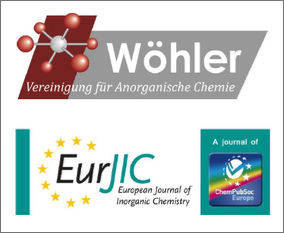 Call for Nominations: EurJIC– Wöhler Young Investigator Prize 2019
Call for Nominations: EurJIC– Wöhler Young Investigator Prize 2019
Nominations are open for the fourth EurJIC–Wöhler Young Investigator Prize, which will be presented at the GDCh-Wissenschaftsforum Chemie in Aachen, September 15–18, 2019.
This award honors a young investigator in the field of Inorganic Chemistry for an excellent scientific publication in which the candidate is a correspondence author.
Click here for more information.
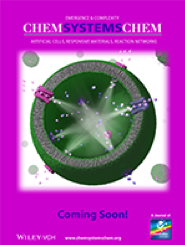 ChemSystemsChem– Your new home for high-impact research in systems chemistry
ChemSystemsChem– Your new home for high-impact research in systems chemistry
ChemSystemsChem(www.chemsystemschem.org) is the latest addition to the ChemPubSoc Europefamily of journals. Itcovers all aspects of emergence and complexity in chemical systems, including artificial cells, responsive materials and reaction networks. Visit the journal homepagefor more information and submit now!
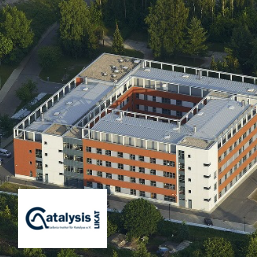 EurJIC and EurJOC: Highlighting LIKAT in Our Recently Introduced Series: European Institute Features
EurJIC and EurJOC: Highlighting LIKAT in Our Recently Introduced Series: European Institute Features
The second top European institute to be featured in this series is the Leibniz-Institut für Katalyse (LIKAT) in Rostock, Germany. EurJICand EurJOCare pleased to bring you a joint virtual issue highlighting the excellent research performed at the institute. The issue is rounded by a Guest Editorial written by the director of the institute, Matthias Beller. Discover more.
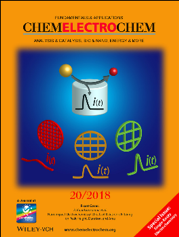 ChemElectroChem: Special Issue on Single-Entity Electrochemistry
ChemElectroChem: Special Issue on Single-Entity Electrochemistry
This growing, exciting, and captivating field is represented by 25 original contributions and focused topical reviews on single‐entity electrochemistry research in this Special Issueof ChemElectroChem, guest-edited by Yi‐Tao Long, Patrick R. Unwin, and Lane A. Baker.
Topics include theoretical and fundamental studies, development of new methods, and analytical assays for various applications.
David Spichiger, SCS
23.10.2018
SICS'18 Best Poster Award
The organizing committee of the 2nd Swiss Industrial Chemistry Symposium (SICS), that took place at University of Basel on Friday, October 19, 2018, awarded three students with the SICS Best Poster Award 2018. 85% of the posters that were presented in one of the two sessions during lunch time came from PhD students and they completed the lecture program that exclusively presented industrial project.
After the ceremony, the three winners gave a five minute short talk on their research. The SCS and the organizing committee like to take the opportunity to congratulates the winners again:
Johannes Diesel, EPFL Lausanne
«Nickel-Catalyzed Enantioselective Pyridone C-H Functionalizations Enabled by a Bulky N Heterocyclic Carbene Ligand»
Alejandro Guarnieri Ibáñez, University of Geneva
«Diversity-Oriented Synthesis of Heterocycles and Macrocycles by Controlled Reactions of Oxetanes with α-Iminocarbenes»
Benson Jelier, ETH Zürich
«Radical Trifluoromethoxylation of Arenes Triggered by a Visible-Light-Mediated N–O Bond Redox Fragmentation»
The SICS Best Poster award is endowed with a certificate and a cash cheque of CHF 100.00.
Website Swiss Indusrial Chemistry Symposium 2018
David Spichiger, SCS
19.10.2018
Sara Iten neue Geschäftsführerin der GSASA ab 15. Oktober 2018
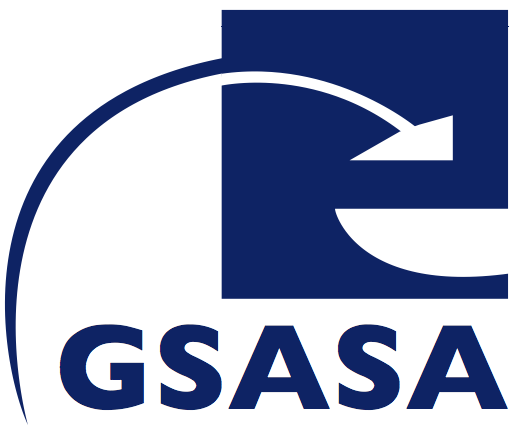 Frau Sara Iten hat per 15. Oktober 2018 die Stelle der Geschäftsführerin der GSASA angetreten.
Frau Sara Iten hat per 15. Oktober 2018 die Stelle der Geschäftsführerin der GSASA angetreten.
Die bisherige Geschäftsführerin, Frau Claudia Broggini, hat sich entschieden, nach ihrem Mutterschaftsurlaub mit einem reduzierten Pensum als klinische Pharmazeutin in ihrem Heimatkanton zu arbeiten. Frau Susanna Kussmann, welche ihre Vertretung während der Mutterschaft übernommen hat, wird per 1. Dezember 2018 eine neue Herausforderung annehmen.
Sara Iten ist Apothekerin mit einem MBA als betriebswirtschaftliche Zusatzqualifikation und hat in den letzten 16 Jahren in verschiedenen Funktionen bei pharmaSuisse, dem Schweizerischen Apothekerverband gearbeitet. Anlässlich der GSASA-GV im November und in einer kommenden Nummer der eNews wird sich Sara Iten gerne etwas genauer vorstellen.
Wir freuen uns sehr auf die zukünftige Zusammenarbeit!
Johnny Beney, Präsident der GSASA
Kontakt:
GSASA, Schweizerischer Verein der Amts- und Spitalapotheker
CH-3000 Bern
E-Mail:
Telefon: 0848 04 72 72
David Spichiger, SCS
16.10.2018
2nd Swiss Industrial Chemistry Symposium 2018 (SICS), 19.10.2018
![]() 2nd Swiss Industrial Chemistry Symposium 2018 (SICS)
2nd Swiss Industrial Chemistry Symposium 2018 (SICS)
University of Basel, Department of Chemistry
St. Johanns-Ring 19, 4056 Basel
The SICS is a, one-day symposium with lectures and short talks of industrial chemists working in R&D in Switzerland. The symposium offers a unique platform for industrial scientists, working in research and process research, to present their latest results, to interact with each other and to network with professors, PhD students and other scientific staff of Swiss universities. An extended poster session with presentations from industry (20%) and academy (80%) will stimulate the interaction.
Program
| 08.30 | Welcome coffee, registration |
Morning SessionChairs: Jérôme Cassayre, Syngenta and Thomas Heinz, Novartis |
|
| 08.55 | Opening, welcome Dr. Remo Gamboni, F. Hoffmann-La Roche |
| 09.00 | Dr. Silvio Roggo, Senior Investigator, Natural Products Chemistry, Novartis AG «Reengineering and Repurposing of Cyclosporins» |
| 09.30 | Dr. Marc Thommen, Head CMC, Polyphor Ltd, Allschwil, and Dr. Stefan Eissler, Bachem AG, Bubendorf «Murepavadin - A novel antibiotic overcoming bacterial resistance and its challenging manufacture on large scale» |
| 10.00 | Dr. Michael Levis, Siegfried AG «From Lab to Plant – achieving better process performance on scale using new lab technologies and data management tools» |
| 10.30 | Coffee Break |
| 11.00 | Dr. Christian Chapuis, Firmenich SA «Synthesis of Methyl Jasmonate and Analogues» |
| 11.30 | 4x Short Talks à 8min Dr. Andreas Hafner, BASF Schweiz AG, Basel
«Vision “24h daylight illumination in buildings"» Dr. Andreas Gloger, Philochem AG
«DNA-encoded chemical libraries» Dr. Christof Aellig, LONZA, Visp
«Lonza's advances in flow chemistry» Dr. Paul Hebeisen, PIQUR Therapeutics AG, Basel
«What a Difference a Dalton Makes. From the University Lab to PIQUR» |
Lunch and Poster Sessions |
|
| 12.10 | Lunch buffet |
| 12.45 | Poster sessions A (2nd and 3rd floor) and coffee |
| 13.30 | Poster sessions B (2nd and 3rd floor) and coffee |
Afternoon SessionChair: Olivier Baudoin, University of Basel |
|
| 14.20 | 4x Short Talks à 8min Dr. Craig Harris, Head of Research Synthesis, Nestlé Skin Health/ Galderma S.A., Lausanne
«Design and Synthesis of Novel Peptidomimetic Caspase I Inhibitors as a Novel Topical Treatment for Acne» Dr. Werner Bonrath, DSM Nutritional Products
«Future of Catalysis in Fine Chemical Industry» Dr. Thomas Fessard, Spirochem AG
«New trends and tactics in bioisosteric switch strategies» Dr. Vit Lellek, Cilag/ Johnson & Johnson
«From Process Development of a potent Cathepsin S-Inhibitor to efficient Syntheses of Pyrazoles» |
| 15.00 | Dr. Thomas Woltering and Jean-Michel Adam, F. Hoffmann-La Roche AG, Basel «BACE1 Inhibitor - from 12mg to 7kg: A Great Mix of Challenges, "Surprises" & Achievements» |
| 15.30 | Dr. Christoph Boss, Idorsia Pharmaceuticals Ltd., Allschwil «Discovery and Characterization of ACT-541468, an Orally Available, Brain Penetrant Dual Orexin Receptor Antagonist with Potent Sleep Promoting Properties» |
| 16.00 | Coffee Break |
| 16.30 | Dr. Clemens Lamberth, Syngenta Crop Protection AG, Stein (AG) «How Rarely Used Reactions enabled the Synthesis of Highly Active Fungicides» |
| 17.00 | Dr. Ralf Dümpelmann, BaselArea.Swiss: promoting and enabling innovation |
| 17.05 | Award ceremony for the best poster presentation 3x5' presentations of winners |
| 17.30 | Concluding Remarks: Dr. Alain De Mesmaeker, Syngenta / SCS President Aperitif and Networking; meet the exhibitors and BaselArea.Swiss |
Free admission for SCS members. However, online registration until October 12 is mandatory. CHF 50.00 for non-SCS members.
Page 75 of 299
